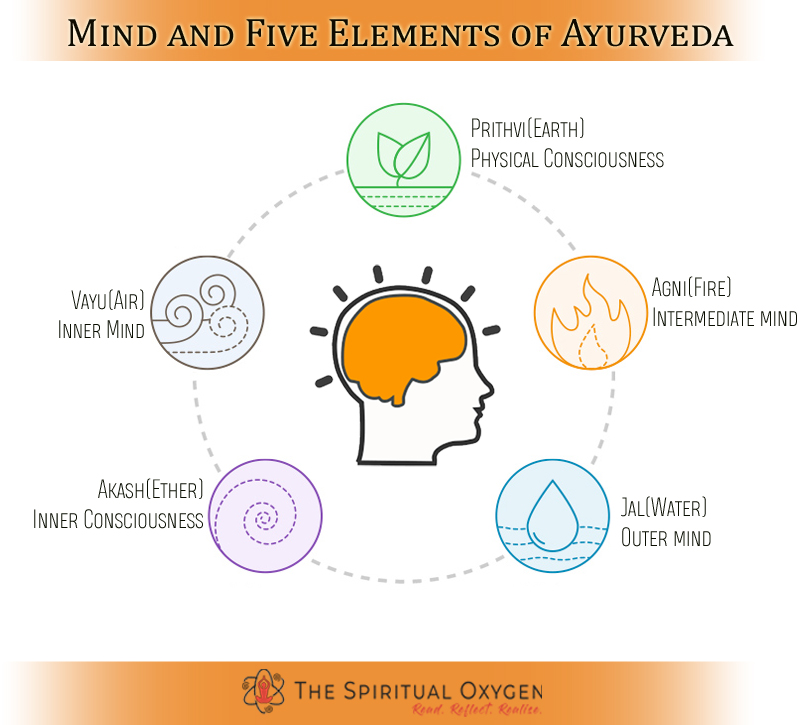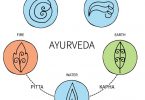Have you ever thought that how does mind function? What are the influencive factors to the mind?
There are many approaches to understand the functioning of mind. One of the ancient approaches in India is Ayurveda. Knowledge of Ayurveda comes from the understanding of nature around us. So you want to know about nature and functioning of body and mind, the best way is to look at how natural order operates everything around. Basically we are going see relation between mind and five elements of Ayurveda.
Know more about what is Ayurveda?
Mind and Five Elements of Ayurveda
We live in multi – level comos, including matter, energy and mind. Each level helps us to know the other. According to Ayurveda all living and non-living things on earth, including humans are consist of these five elements in varying degrees.
Know more about five elements of nature.
However most of us do not think of the mind in term of the elements. Not only physical but also the mental existence gets influence by these five elements. Even the elements in the mind are more subtle than those in the body. In one way we can say that five elements are the layers of functionality of mind (consciousness).
Akash (Space) inner self/consciousness
Vayu (Air) inner mind/deeper consciousness
Agni (Fire) intermediate mind/intellectual aspect of mind
Jal/apa (Water) outer mind/reactive aspect of mind
Prithvi (Earth) physical consciousness/outer self
Prithvi (earth) – physical consciousness/outer self
Earth is the grossest element among all five elements, which holds all living and nonliving substance therefore it is the element of stability and structure. This element connects us more with physical body and provides an objective referent or identity for the self.
Jal/apa (water) – outer mind/reactive aspect of mind
Jal or Apa (water element) is next element. It is the element of liquidity and adaptivity. Water exists in the mind as the emotional nature, our ability to adapt outer world. Water is the formative aspect of the mind allows us to imagine, plan and construct our reality.
Agni (fire) – Intermediate mind or intellectual aspect of mind
Agni (fire) is the element of transformation and heat. Fire exists in the mind as the rational or discriminating faculty which allows us to perceive and to judge things. As fire burns, digest and converts things into more subtle forms that nourish our awareness and provides the ability to ascertain discern.
Vayu (air) – Inner mind/deeper consciousness
Vayu (air) is the element of movement and formlessness. Air exists in the mind as the underlying mental sensitivity or deeper feeling nature. It is related to habits and tendencies that sustain the mind, by which we are continually thinking. Practices like Pranayama and Meditation help in balancing air element which results in calm and relaxed mind.
Akash (space) – inner self/consciousness
Akash (space) is the element of emptiness, without it matter cannot exist. Mind space is the background capacity for all mental functions, vibrations and impressions. Without space, the mind cannot function and has no room to move. As we remain aware of external space we must also be aware of inner mind space then only we can learn to be detached and not identify with the activities of the mind. From it we can observe the mind and transcend its limitation.
Conclusion
These elements are inanimate, but when they come in certain combination and give rise to Tri-dosha (Vata, Pitta, Kapha). They can be defined as three foundational energies or principles which govern the function of our bodies on the physical and emotional level (all psycho-physiological functions). Each individual has these elements in a unique combination, which is the cause of verities in our personality and nature.





